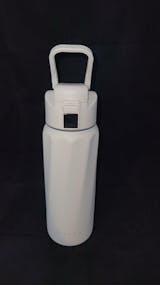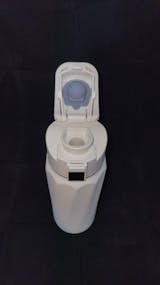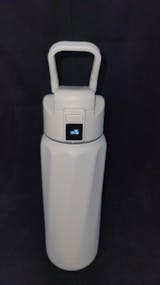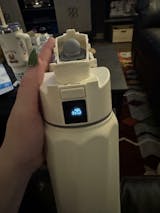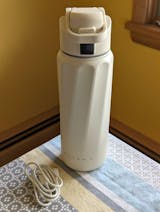
Do You Know if They're Hydrated? Addressing Elderly Hydration Challenges
Hydration is critical to maintaining good health at any age, but it becomes increasingly important as we age. Seniors face unique challenges that make staying adequately hydrated more difficult. These challenges can lead to severe health consequences, impacting their quality of life. Understanding and addressing these hydration issues can significantly improve the well-being of elderly individuals. This blog explores the common problem of intentional underhydration among seniors, the associated health risks, and practical tips for ensuring proper hydration.
Why intentional underhydration often happens among seniors?

Fear of incontinence
One of the most common reasons seniors deliberately limit their water intake is the fear of incontinence. Many elderly individuals are concerned that drinking too much water will lead to frequent urination, which they might find embarrassing or difficult to manage, especially if they have mobility issues or are in social settings. This fear can lead to a cycle of dehydration and health problems that could have been easily avoided with proper hydration.
Mobility issues
Mobility issues further exacerbate the problem of underhydration. Seniors who need help moving around or who require assistance to go to the restroom may avoid drinking enough fluids to prevent the inconvenience and discomfort of frequent bathroom trips. This avoidance, while seemingly practical, can lead to significant health risks.
Social and psychological factors
The stigma and embarrassment associated with incontinence and the physical challenges of reaching the restroom often lead to social isolation. Seniors might avoid social activities and outings to prevent the embarrassment of needing frequent restroom breaks. This isolation can contribute to underhydration, as they may need help to drink enough water.
Potential health risks of insufficient hydration on seniors
Urinary tract infections (UTIs)
One of the most immediate risks of insufficient hydration is an increased likelihood of urinary tract infections (UTIs). Dehydration can lead to concentrated urine, which creates an environment conducive to bacterial growth. UTIs are not only uncomfortable but can also lead to severe complications, especially in older adults, such as kidney infections or sepsis.
Kidney stones
Another serious consequence of chronic dehydration is the formation of kidney stones. When insufficient fluid is in the body, minerals can crystallize and form kidney stones. These stones are often very painful and can lead to further medical complications if not treated promptly. Ensuring adequate hydration is one of the primary methods for preventing kidney stones.
Decreased cognitive function
Dehydration can also have a profound impact on cognitive function. Seniors who do not drink enough water may experience symptoms such as confusion, dizziness, and even delirium. Chronic dehydration can exacerbate or mimic conditions like dementia, making it crucial to maintain proper hydration to support cognitive health.
Practical tips for encouraging proper hydration for seniors
Creating a hydration routine
Establishing a regular drinking schedule is one of the most effective ways to ensure seniors stay hydrated. Encouraging small, frequent sips of water throughout the day can help maintain hydration without overwhelming them. Setting reminders for drinking water at specific times, such as with meals or medications, can also be beneficial.
Using hydration tools
In today’s technology-driven world, several tools are available to help monitor and improve hydration. Smart water bottles like WaterH Boost and hydration-tracking apps can remind seniors to drink water at regular intervals. These tools can be set up to send notifications, making maintaining a consistent hydration routine easier. These devices often have features that track fluid intake and provide gentle reminders, which can greatly aid seniors who might forget to drink regularly.
Making hydration more accessible
Simple changes in the environment can significantly improve hydration habits. Placing water bottles or glasses within easy reach, especially in areas where seniors spend most of their time, can encourage them to drink more frequently. Using lightweight, easy-to-hold drinking containers can also make it more convenient for those with limited strength or dexterity to stay hydrated.
Incorporating hydration into daily activities
Integrating water breaks into daily routines can also help improve hydration. For instance, having a glass of water with each meal and snack or taking water when walking or engaging in other activities can make hydration a seamless part of daily life. Water-rich foods such as fruits (e.g., watermelon, oranges) and vegetables (e.g., cucumbers, tomatoes) can supplement fluid intake and make hydration more enjoyable.
Family and caregiver involvement

Family members and caregivers play a crucial role in ensuring seniors stay hydrated. Regularly checking on their water intake and gently reminding them to drink can make a significant difference. It's important to approach this task with empathy and understanding, making the process as stress-free as possible. Encouraging social activities that naturally incorporate drinking fluids, like tea or coffee gatherings, can also help improve hydration habits.
Conclusion
By understanding these challenges and implementing practical strategies, families and caregivers can help ensure their elderly loved ones maintain proper hydration. Establishing a hydration routine, utilizing modern hydration tools, making fluids easily accessible, incorporating hydration into daily activities, and involving family support are all effective ways to combat dehydration in seniors. Ensuring that our elderly population stays well-hydrated is crucial for their health and enhances their overall quality of life. Follow WaterH to find more tips for staying well-hydrated.













